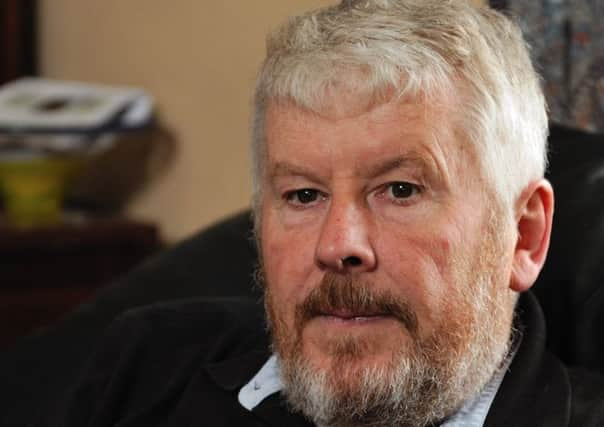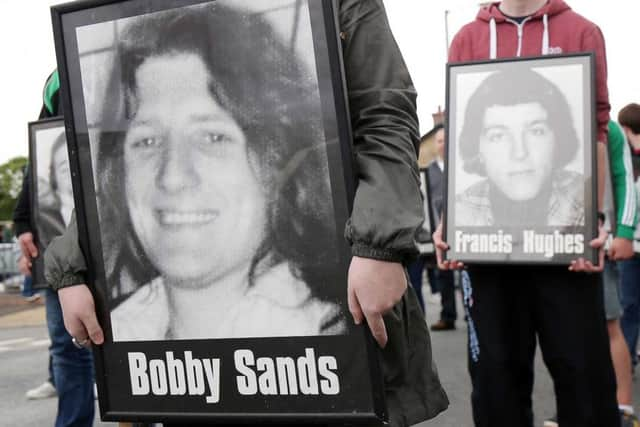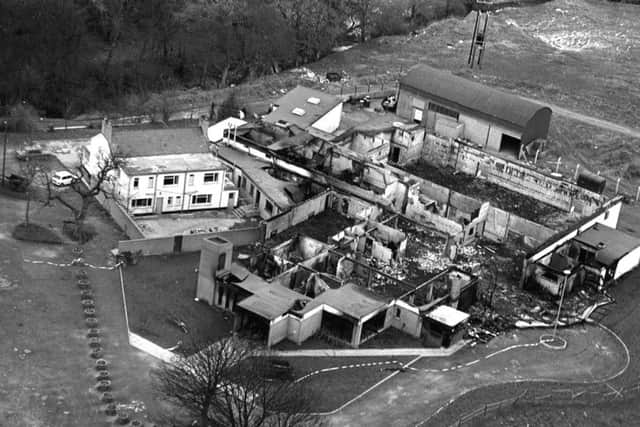Native Irish speakers regard the zeal of the converted as more harmful than useful


I am Roman Catholic parish priest of Carna, 80 kilometres west of Galway, just around the corner from where the coastline heads due north towards my native Mayo.
I am also an Irish language writer who has more than a dozen novels published in that language, as well as others in English, German Polish, Romanian and Bulgarian.
Advertisement
Hide AdAdvertisement
Hide AdI have spent 46 years in Gaeltacht parishes around the coastlines, shorelines, highlands and islands of Galway and Mayo.


Scenery and shellfish have played a big part in my life. English is my first language, and I tend to look on language mainly as a means of communication.
If someone speaks to me in English, I answer in that language. The same holds true of Irish. I can even tolerate some bad language, but generally do not see any language as a threat.
Irish, as spoken generally in Gaeltacht areas, is not an aggressive language. If anything people are almost too courteous.
Advertisement
Hide AdAdvertisement
Hide AdWhen one English speaker for instance joins a conversation, everyone switches to that language to accommodate them. The same is not always true for those for whom Irish is a learned language, particularly in some of the cities.


The zeal of the converted can take over, and that type of approach is looked on by native speakers as more harmful than useful.
I remember a man in the Aran Islands once telling me his night out in a pub was ruined by a tourist trying to learn Irish from him. “I would have no problem talking to him all night in English,” he said, “but how was I supposed to relax after a week’s fishing with a man spitting pidgin Irish and Guinness into my ear.”
I do see how language can be a badge of identity. The provision of an Irish language TV station about 20 years ago played a quiet but important role in the process which led to what became known as the Good Friday Agreement.
Advertisement
Hide AdAdvertisement
Hide AdFor some people it was a badge of their identity, somewhat in the way a successful soccer team for instance can raise morale without it being person’s only identity.


I learned an important lesson about the way in which language can carry identity at the terrible time of the hunger strikes in the early 1980s.
While black flags flew in sympathy with the dying, the dead and their families in much of the country, they were noticeably scarce in Gaeltacht areas in this part of Ireland.
It is not that people were not as sad or sympathetic from a humanitarian more than a political standpoint. They did not need to wear that sympathy on sleeve or flagpole. Their tongue was their identity.
Advertisement
Hide AdAdvertisement
Hide AdGaeltacht areas have long had the reputation of being more open-minded than other parts of the country. It has been argued that neither Catholic Jansenism nor Protestant Puritanism took hold in Irish speaking areas because the different churches did not have the preachers to proclaim their more Victorian messages in Gaelic.


It may be more likely that many people from those areas lived abroad for some time, in England, the United States or Australia and had seen different cultures and other ways of life.
Although not from the Gaeltacht, one of my own grandfathers returned from Chicago to settle in his home place in 1900, so such coming and going was quite common even then.
Perhaps we all confused upright with uptight in days gone by, but attitudes seem to be getting more relaxed now. Even God seems to be more laidback.
Advertisement
Hide AdAdvertisement
Hide AdThe Irish language survived in what were the poorest areas of the country, islands and coastal areas which are beautiful but rugged.
There is just one level field in this parish that might compare with some of the beautiful farming land in the North or South of the country, and that is the GAA pitch.
The rest of the fields have hills and hollows, rocks and rushes.
The scythe is still used to cut hay in some places, but the finest of cattle and Connemara ponies are produced.
Advertisement
Hide AdAdvertisement
Hide AdFishing, fish farming and fish processing supplement tourism and revenue from students learning the Irish language.
While the scythe may be old-fashioned, the plethora of new-fangled tablets, phones and computers in most homes are not. There was a time when I thought an iPad was a patch to wear, pirate-like over a sore or missing eye.
Even I have been updated since, though I still cling to what has been described as “an old man’s phone” because for me it as reliable as an old Ferguson tractor with not too many complications.
The Irish language itself is in a fairly precarious position even in Gaeltacht areas, though I personally feel it is as strong now as it was in the 70s of the last century.
Advertisement
Hide AdAdvertisement
Hide AdIn the meantime, Irish language schools and preschools have mushroomed in most counties. While many parents are not fluent themselves, they want their families to have Irish as part of their identity.
Despite that, there are probably more Polish than Irish speakers in the country, and that or any other language are not a threat to anyone as far as I am aware.
Irish is not owned by Sinn Féin or any other political grouping. None of the five TDs in this West Galway/South Mayo constituency is from Sinn Féin, although Senator Trevor Ó Clochartaigh has come close in the past two elections.
The presence of an Irish language act in this jurisdiction seems to have more of a psychological than practical effect. It is still difficult to have any business done with government departments or agencies through the medium of Irish, but Irish speakers at least have an agency to complain to.
Advertisement
Hide AdAdvertisement
Hide AdAlmost 40 years ago I, as a young priest, was one of those so appalled by the La Mon bombing that I arranged a fast to protest that the bombers were certainly not doing this in my name.
I was roundly condemned by republicans for not speaking out about atrocities on the other side, but my point was that all any of us could do was to try to influence those claiming to speak in our name.
Things have thankfully come a long way since.
Identity matters will fill the air this summer. Live and let live.
• Alex Kane is away